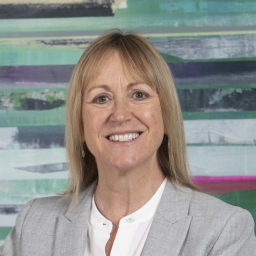Meaningful Business (MB:) Can you share some details about the areas you invest in, and why you have chosen these themes?
Isha Sharma (IS): Octopus Ventures invests in early stage, tech-enabled companies in the UK and Europe. Our mission is to invest and support the people and ideas who will change the world. We have a team of experts working within Fintech, Deep Tech, Health, Consumer and B2B Software as well as on the thematic Climate Tech opportunities that present across each of these verticals.
As an example, our Deep Tech team spend time evaluating carbon removal technologies whereas our Fintech team have the expertise when it comes to companies working on climate data solutions. We have made Climate Tech investments in companies focused on energy & efficiency (Origami Energy), climate data (Minimum), as well as those who are thinking about food waste (Olio), fast fashion (Depop), as well as those reimagining the way we travel (Trafi). We are interested in companies who are aiming to change the climate change narrative, whether that be through sustainable consumption, carbon removal technologies, or innovations within the built environment – we are open to all!

Isha Sharma, Portfolio Analyst at Octopus Ventures
MB: How do you see the investment industry evolving over the next two years, in terms of financing nature-based solutions?
(IS): According to World Economic Forum (WEF), we have seen a surge in capital flowing to green investments, but only a fraction of this currently goes to nature-based solutions. Forward looking investors recognise business models rely on the natural world and have a significant impact. WEF cites examples such as our reliance on the oceans for the fishing industry, pollination to enable agricultural production and the use of nature to innovate new pharmaceuticals. Given this link, we feel the opportunities to invest into nature-based solutions will continue to grow over the years to come.
MB: What do you believe needs to change or improve within the investing ecosystem, to make capital more accessible for climate entrepreneurs?
(IS): Policy makers, scientists and investors communicating and working together; knowledge, expertise, capital and government support are all needed for us to fight the climate crisis. The magnitude of the problem can feel overwhelming, but every incremental positive action is a step in the right direction. We challenge our team to research, discuss and highlight a different climate thesis each quarter. This helps us to meet new cohorts of climate entrepreneurs who are tackling the problems we are seeking to solve.
MB: How do you support your portfolio entrepreneurs, beyond money?
(IS): Talent: Building a team is the #1 priority for any growing business and recruiting high quality professionals continues to be a top challenge for startup leaders. We have a dedicated Portfolio Talent Team who work with our investee companies on recruitment, organisational design & development, compensations & benefits, and how to think about diversity, equity & inclusion as they do all of this.
Raise: We help our portfolio companies scale. We are one of the most active UK venture investors and we are exposed to over 40 follow-on rounds a year. We host raise events where we introduce our network of capital providers to our portfolio companies.
Sustainability: We support our investee companies as they build and implement sustainable practices as their business grows. Investors and consumers alike are increasingly interested in how a company is managing their environmental impact, as well as how they think about social and governance factors. There is a lot we can do. For example, most companies find measuring carbon difficult. It’s often time/resource heavy and requires data which can be hard to track and manage. To help our portfolio companies, Octopus partnered with Minimum: a carbon measurement tool so that we can help tackle this challenge together.
MB: What advice would you give to environment-focused entrepreneurs, looking to raise capital?
(IS): It would be the same advice we give to all our entrepreneurs. There are no hard and fast rules when speaking to investors. We recently released a consumer report ‘Measuring for Happiness,’ that speaks to what we think really matters. When you are establishing a business, find a way to accurately think about how you measure both successes and shortcomings as this will make conversations with investors much easier. There are many factors that make up a business. Performance metrics are important, but so is the team. For example, a brilliant climate proposition is good — but a workable framework for growth to support it is even better.




















